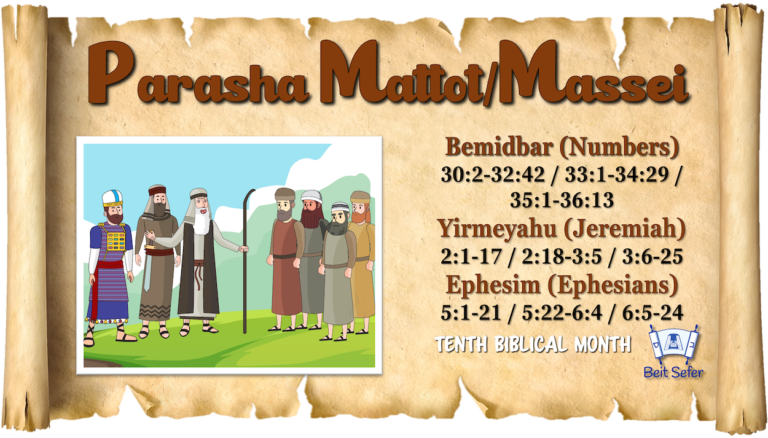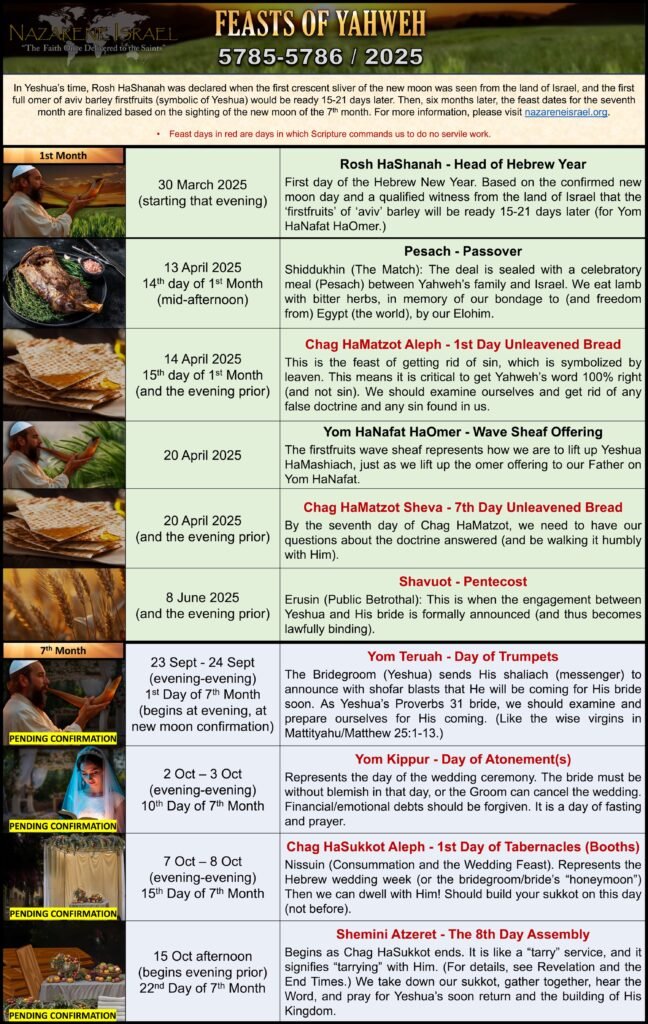Parasha Mattot/Massei – Year 2 – A Home for Every Tribe.
Shabbat Shalom, Nazarene family.
This week we will study the parasha Mattot/Massei, portion of year 2, where we will see the summary of the Israelites’ journeys from Egypt to the border of the Promised Land. We will read about the different encampments where they stopped and the instructions on how the land of Canaan should be distributed. We will also look at the territorial boundaries of the tribes of Israel and the people in charge of allocating the land, showing the importance of obeying Yahweh’s instructions for living in the Promised Land.
Bemidbar (Numbers) 34:13-15
13 Then Moshe [Moses] commanded the children of Israel, saying: “This is the land which you shall inherit by lot, which Yahweh has commanded to give to the nine tribes and to the half-tribe.
14 For the tribe of the children of Reuben according to the house of their fathers, and the tribe of the children of Gad according to the house of their fathers, have received their inheritance; and the half-tribe of Manasseh has received its inheritance.
15 The two tribes and the half-tribe have received their inheritance on this side of the Jordan, across from Jericho eastward, toward the sunrise.”
This week corresponds to the reading of the texts (in bold):
- Bemidbar (Numbers) 30:2-32:42 / 33:1-34:29 / 35:1-36:13
- Yirmeyahu (Jeremiah) 2:1-17 / 2:18-3:5 / 3:6-25
- Ephesim (Ephesians) 5:1-21 / 5:22-6:4 / 6:5-24
Summary of the weekly study, Year two:
Bemidbar (Numbers) 33:1-34:29
In these verses, the Israelites’ journeys from their departure from Egypt to the gates of the Promised Land are recapitulated, listing the places where they camped throughout the wilderness. This account reflects Yahweh’s faithfulness in guiding His people on their journey. In addition, these chapters present detailed instructions on the distribution of the land of Canaan among the tribes of Israel, delineating the territorial boundaries of each tribe. Leaders are also appointed to allocate the land, showing obedience to Yahweh’s commands in order to receive the promised inheritance.
Yirmeyahu (Jeremiah) 2:18-3:5
In these verses, Yahweh rebukes Israel for their unfaithfulness and for turning to other nations for help instead of trusting in him. Through rhetorical questions, it denounces how the people have abandoned their Elohim, looking for solutions in the wrong places. It is mentioned how Israel has become corrupt, adopting idolatrous customs, and how this has brought negative consequences. In the midst of the condemnation, Yahweh invites sincere repentance and offers restoration, showing His desire for the people to return to Him and receive His forgiveness and blessing.
Ephesim (Ephesians) 5:22-6:4
In these verses, Shaul (Paul) offers instructions for family relationships and Christian living within the home. First, wives are taught to submit to their husbands, as an act of respect for Messiah, and husbands are taught to love their wives as Yeshua loved the church, sacrificially. Children are then exhorted to obey their parents, for this is right, and parents are reminded not to provoke their children to anger, but to bring them up in Yahweh’s discipline and admonition. This passage teaches us the importance of divine order for family welfare.
–
Enjoy this fun activity with the whole family. Inside you will find development questions for the three weekly sections (Torah, Haftarah and Brit Chadashah). While the older ones discuss the questions and their answers, the younger ones can color the picture related to the teaching, solve a maze, find the 7 differences and much more. We encourage you to do it week by week and instill in your children the habit of studying Yahweh’s word as a family.
We hope you and especially your sons and daughters enjoy this effort. For it is through the study of the Scriptures that we can come to understand the love and care that Yahweh has always had for us. And also to perceive that He has been taking care of even the smallest detail, so that we can take care and enjoy all that He gives us. That is why it is so important that our children learn and grow up knowing that they are loved by the Creator of all that exists.
Shalom.
To view the Tanach studies, click here
To view the Brit Chadasha studies, click here




